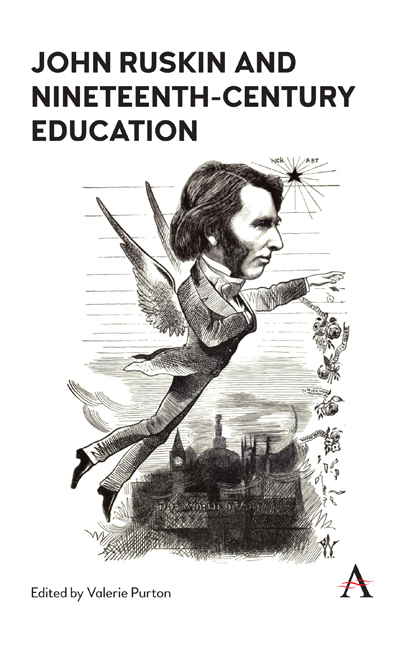Foreword
Published online by Cambridge University Press: 25 July 2018
Summary
Dinah Birch is one of the world's best Ruskin scholars. She is also an exceptional educator, a teacher, writer, broadcaster and ally.
Ruskin believed in scholarship as he helped the nineteenth century define it – the commitment of The Stones of Venice (1851– 53) or Modern Painters (1843– 60) – and he believed in reading alertly and scrupulously. ‘Of Kings’ Treasuries’ (1864) remains one of the most ambitious accounts of how books communicate in the whole period – think of the dazzling analysis of ‘Lycidas’. Dinah, in a different world from the Victorians, believes in these things, too.
She is most associated with Ruskin, of course, from Ruskin's Myths (1988) onwards. That book, which began as the Oxford DPhil thesis, ‘Ruskin and the Greeks’, is one of the most lucid accounts of the whole of Ruskin's intellectual and personal maturation available. But she is a leading critic of the literature of the nineteenth century more generally. Editions of George Eliot, Anthony Trollope and Elizabeth Gaskell; essays on, among other topics, Keats, Tennyson, the Bronte sisters, nineteenth- century sentiment, the paradoxes of success, Toni Morrison; reviews in the Times Literary Supplement and the London Review of Books on a huge diversity of literary and biographical subjects. With both her range and her tact, Dinah was the ideal person to edit the seventh edition of The Oxford Companion to English Literature (2009), an enormous undertaking that was greeted with acclaim.
Dinah reads literary works as the products of human lives: of ideas, ambitions, loves, disappointments, confusions and occasional absurdities. She reads as she listens and talks: verbal statements are the testimony of, and from, human existences. They are to be taken seriously. Little makes more sense to Dinah than the individuals who lie behind an imaginative creation. There is nothing flattening in that. On the contrary, her priority is with art as a version of a life, not as a mere statement of it. She is concerned with the play of creativity on real things, the play of real things on creativity. She doubts those who think art is only political assertion, only self- justification or only ‘theme’. It is transformation.
- Type
- Chapter
- Information
- John Ruskin and Nineteenth-Century Education , pp. ix - xiiPublisher: Anthem PressPrint publication year: 2018



